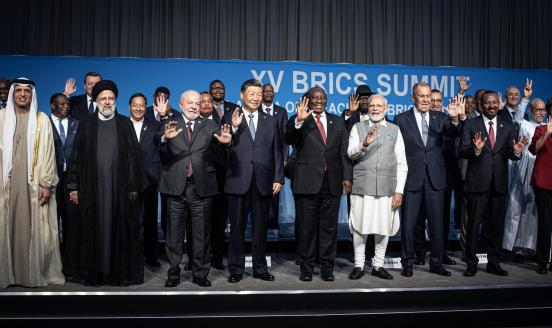The 13th World Knowledge Forum - The Great Breakthrough: New Solutions for the Global Crisis

Bruegel will co-organise a session in this year's World Knowledge Forum - you can see the details of the session below.
Panel title: "The global consequences of deleveraging"
Co-organizers: Asian Development Bank and Bruegel
Date and time: October 9, 17:00–18:20
Venue: Grand Hall
Scope: The session will cover the various dimensions of deleveraging in the US, Europe, and Japan, and address its implications for emerging countries.
Moderator: Phil Smith, General Manager of Reuters News, North Asia
Panelists:
- Jean-Louis Beffa, Honorary Chairman, Compagnie de Saint-Gobain
- Erik Berglof, Chief Economist, European Bank for Reconstruction and
Development - Mitsuhiro Fukao, Professor of Economics, Keio University
- Jean Pisani-Ferry, Director, Bruegel
- Changyong Rhee, Chief Economist, Asian Development Bank
- Jorge Sicilia, Chief Economist, Banco Bilbao Vizcaya Argentaria SA
Synopsis:
The European debt crisis that has dominated policy discussions in recent times is a particularly acute aspect of a broader syndrome: by and large, all major advanced economies are confronted by a major deleveraging problem that affects in various proportions governments, households, and the financial sector. The implementation of Basel III in January 2013 is even
likely to exacerbate this deleveraging problem. In Europe the problem is compounded by systemic flaws in the functioning of the currency area but it is not of larger magnitude than elsewhere.
With the major advanced economies simultaneously going through the deleveraging process, there will undoubtedly be implications on long-term global growth prospects. Inevitably, there will be spillovers to emerging economies, not only in terms of slower growth but also in terms of capital flows, exchange rates, and financial market stability. Furthermore emerging countries themselves are not immune to excess leverage. Recessions can cause asset prices to decline, affecting the soundness of the banking sector even in emerging markets, especially those with large holdings of real estate and household debt.
There have also been differences of opinion about how the ensuing crises have been handled in these economies and the appropriate roles of monetary and fiscal policies in resolving the crises.
To assess these issues, this session will consider the following questions:
- Private vs. public deleveraging, real vs. financial deleveraging: When it affects more than one category of agents, as is the case in several countries, what is the desirable sequencing?
- Impact of Basel III on deleveraging: What are the possible consequences of Basel III on advanced countries’ deleveraging? What are the implications for banks’ riskier businesses, such as financing of infrastructure projects in developing countries? What are the impacts for trade financing?
- The extent of deleveraging: How much deleveraging have advanced economies achieved? How much more needs to be done and over what time frame?
- The balance between deleveraging and growth: What policies should advanced economies adopt to support economic recovery while deleveraging (i.e., reducing debt and stabilizing financial markets)?
- The implications of deleveraging: What does the deleveraging processes in advanced economies mean for themselves and for emerging economies?
- Lessons from deleveraging: How could emerging economies avoid the spillover effects of deleveraging in advanced economies? How could they secure the soundness of their banking sectors while advanced countries are deleveraging?



